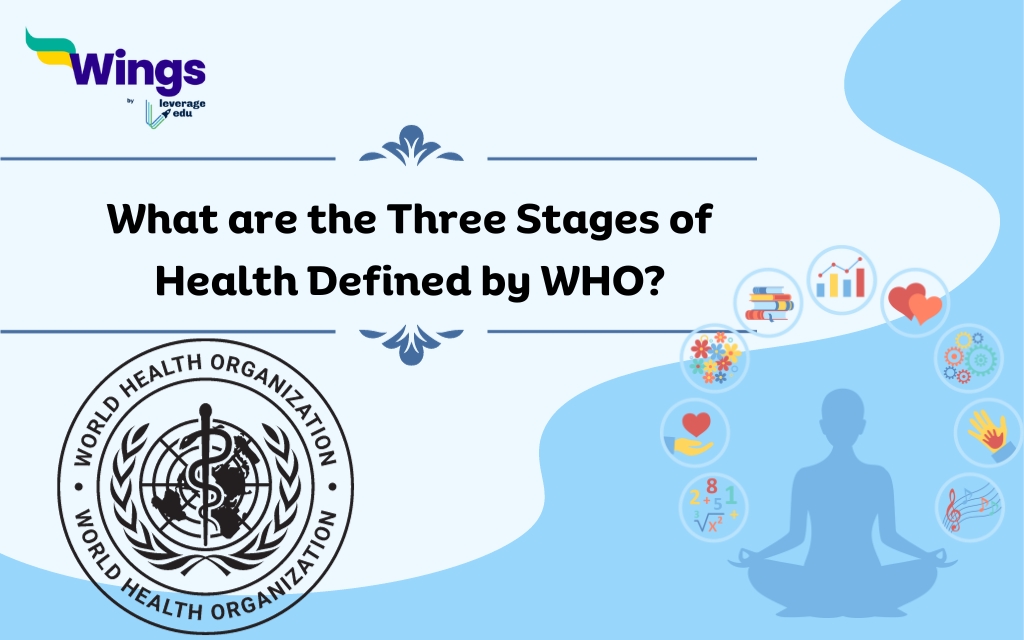The health and well-being of the people are an integral part of the overall development of the country. The World Health Organization works towards promoting human health and providing help to underprivileged people who are deprived of medical facilities. Apart from diseases or infections, WHO considers that the physical, mental, and social well-being of the people are also important for good health. So, the organization covers it in the definition of health. Please read further to learn about what are the three stages of health defined by WHO!
Also Read: What is the Full Form of WHO?
WHO Definition of Health
World Health Organization defined Health as “Health is a state of complete physical, mental and social well-being and not merely the absence of disease or infirmity.” ( WHO Constitution 1948).
WHO perceived the fact that human health is affected by various factors and therefore it is important to maintain a proper balance for living a healthy life.
What are the Three Stages of Health Defined by WHO?
The three main stages of Health are:
Physical Health– Maintaining proper physical health refers to the normal functioning of various systems in the body i.e. respiratory system, circulatory system, digestive system, reproductive system, etc.
Mental Health– It refers to the emotional quotient or the mental state of a person. If a person suffers from depression, anxiety, or other such mental illness is not considered safe or healthy.
Social Health– It is also one of the important components of health because maintaining social integrity as well as building social relationships is also a part of good health.
Also Read: Healthcare Management Courses
Relevant Blogs
| World Health Organization | World Health Day |
| World Tuberculosis Day | World Teen Mental Wellness Day 2023 |
| Top 7 Apps for managing anxiety | Healthy Eating Habits |
| 10 Tips for Students to Improve Their Mental Health | World Brain Tumor Day |
FAQs
The three types of human health are physical health, mental health, and social well-being.
World Health Organization is working towards promoting human health, serving the vulnerable, and keeping the world safe from dangerous diseases.
The WHO definition of health is “Health is a state of complete physical, mental and social well-being and not merely the absence of disease or infirmity.” ( WHO Constitution 1948)
For more information about such informative articles, make sure to check the trending events page of Leverage Edu.


 One app for all your study abroad needs
One app for all your study abroad needs












 60,000+ students trusted us with their dreams. Take the first step today!
60,000+ students trusted us with their dreams. Take the first step today!